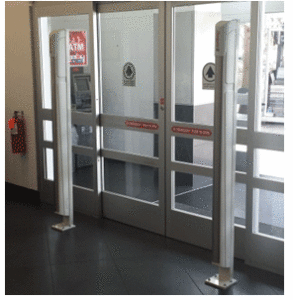 It is the time of year again when Cupid starts shooting his arrows and couples fall in love. What is more romantic than the marriage proposal in a restaurant and a ring presented in a glass of champagne? How about sweethearts strolling along the beach under a moonlit night? Is there anything more touching than the couple that has been married for a very long time and they still walk hand in hand wherever they go? Sometimes love makes us do something dumb to try to impress the apple of our eye. In one instance, a prisoner escaped from jail because he was worried how his wife might react to all the time he had been spending in jail. In another instance, a man robbed three waffle house restaurants and a 4th business in order to pay off his girlfriend’s probation fees (both from mentalfloss.com, “11 Strange Things Done in the Name of Love,” by Jennifer M. Wood, Feb 14, 2014). Perhaps it is the purchase of a ring we can’t afford but we are determined to show our love and commitment to the person we are enamored with. Love is fine and we may even excuse behaviors we might normally consider silly when two people are in love. What is not acceptable is when love and friendship turn into “Sweethearting” deals in a retail business.
It is the time of year again when Cupid starts shooting his arrows and couples fall in love. What is more romantic than the marriage proposal in a restaurant and a ring presented in a glass of champagne? How about sweethearts strolling along the beach under a moonlit night? Is there anything more touching than the couple that has been married for a very long time and they still walk hand in hand wherever they go? Sometimes love makes us do something dumb to try to impress the apple of our eye. In one instance, a prisoner escaped from jail because he was worried how his wife might react to all the time he had been spending in jail. In another instance, a man robbed three waffle house restaurants and a 4th business in order to pay off his girlfriend’s probation fees (both from mentalfloss.com, “11 Strange Things Done in the Name of Love,” by Jennifer M. Wood, Feb 14, 2014). Perhaps it is the purchase of a ring we can’t afford but we are determined to show our love and commitment to the person we are enamored with. Love is fine and we may even excuse behaviors we might normally consider silly when two people are in love. What is not acceptable is when love and friendship turn into “Sweethearting” deals in a retail business.
Sweethearting is a theft or fraud activity that transpires between two or more people who know each other. At least one is an employee who provides special deals to his or her friend(s) and sometimes co-workers. The transgressions often start out small. They may involve giving a small discount on a drink or snack. Maybe it is “accidentally on purpose” overlooking an item while scanning merchandise through a register. More often than not what starts off as a little gift or friendly gesture evolves into a big problem. That boyfriend or girlfriend starts coming to the store more frequently and checking out in their friend’s line. What may have started out as the occasional extra candy bar in the bag or a large drink at the snack bar for the price of a small drink quickly turns into outright passing and theft.
If the activity is going to take place at the register, the cashier may send a text message to the friend alerting them that they are on a register and will look for them to come in. There are a variety of ways the two can rip-off the store. The cashier can ring merchandise up and discount it so it appears the transaction is legitimate. The employee can fail to ring up merchandise and bag it which becomes a passing situation. There is also the tendering of money that can result in cash shortage. The friend hands over a cash payment and the cashier gives too much change to the patron. This is a difficult type of theft to see transpire because money does change hands.
Sweethearting also takes place when an employee intentionally looks the other way when her friend is in the store shoplifting. This does not require the employee to take an active role in the crime. All that is required is for the employee to make a point of turning a blind eye to the theft as it is being perpetrated. There are times when the two parties plan out when the friend will come to the store and steal. This also means the employee is now an active participant and aiding in the commission of the crime which is much more serious on the part of the staff member.
Encourage your team to be friendly and courteous. Go above and beyond in the service you offer to customers. Love your shoppers, just make sure your employees aren’t being sweethearts in the process.
 With darker daylight hours comes the need for more coffee, the use of lights earlier and a plan to keep crime away from your store or business. Have you considered that one of the following types of crime could affect you?
With darker daylight hours comes the need for more coffee, the use of lights earlier and a plan to keep crime away from your store or business. Have you considered that one of the following types of crime could affect you?
 Accidents can be costly to businesses. In fact, according to the
Accidents can be costly to businesses. In fact, according to the It’s that time of year when all store owners and managers start to make personnel decisions. Remember those people you hired in late August, maybe in September or even as late as October or November? Remember the conversations you may have had with them discussing how this was a “seasonal” position? You may have really dangled the carrot in front of them and told them that if they worked hard and showed initiative they might be retained on your staff after the holidays. Guess what? It’s time now for you to start taking a hard look at your staff and making some decisions and that isn’t always pleasant. Now you have to evaluate those employees and consider whether you want to keep them or you may have to decide if you can afford to keep them.
It’s that time of year when all store owners and managers start to make personnel decisions. Remember those people you hired in late August, maybe in September or even as late as October or November? Remember the conversations you may have had with them discussing how this was a “seasonal” position? You may have really dangled the carrot in front of them and told them that if they worked hard and showed initiative they might be retained on your staff after the holidays. Guess what? It’s time now for you to start taking a hard look at your staff and making some decisions and that isn’t always pleasant. Now you have to evaluate those employees and consider whether you want to keep them or you may have to decide if you can afford to keep them.
 Big corporations across the globe worry about cybersecurity attacks and the repercussions those attacks have on the corporation’s bottom line. These cybersecurity attacks to their servers and information databases can be costly and can bring with them costly lawsuits as well. But, according to many analysts, employee theft and shoplifting are the more concerning issues affecting the retail industry. They alone account for more than two-thirds of their shrinkage and that figure seems to be rising every year. During the holiday season, those issues become more problematic and costly, and the retail industry looks for ways to prevent the great loses they will certainly suffer during this jolly time.
Big corporations across the globe worry about cybersecurity attacks and the repercussions those attacks have on the corporation’s bottom line. These cybersecurity attacks to their servers and information databases can be costly and can bring with them costly lawsuits as well. But, according to many analysts, employee theft and shoplifting are the more concerning issues affecting the retail industry. They alone account for more than two-thirds of their shrinkage and that figure seems to be rising every year. During the holiday season, those issues become more problematic and costly, and the retail industry looks for ways to prevent the great loses they will certainly suffer during this jolly time. Could it be that Santa Claus is not always a jolly, giving man? Oh yeah. Take a
Could it be that Santa Claus is not always a jolly, giving man? Oh yeah. Take a  The end of the holiday gift buying season ushers in the inevitable holiday gift return season. Clothes that don’t fit, ugly holiday sweaters no one really wanted, toys that were too old for a young child or too young for the older child all lead to returns, exchanges, and refunds. For those who have been in retail for any length of time, we know that many of these items will be returned without tags or a receipt and not even a gift receipt. It also means people will try to return merchandise to your store that was never even purchased there, despite what the customer in front of you says. This means it is prime time for those who engage in return fraud. There are so many people making returns that trying to separate legitimate refunds and exchanges from the fraudulent ones is difficult. There are steps you can take to minimize the number of fraudulent returns you accept.
The end of the holiday gift buying season ushers in the inevitable holiday gift return season. Clothes that don’t fit, ugly holiday sweaters no one really wanted, toys that were too old for a young child or too young for the older child all lead to returns, exchanges, and refunds. For those who have been in retail for any length of time, we know that many of these items will be returned without tags or a receipt and not even a gift receipt. It also means people will try to return merchandise to your store that was never even purchased there, despite what the customer in front of you says. This means it is prime time for those who engage in return fraud. There are so many people making returns that trying to separate legitimate refunds and exchanges from the fraudulent ones is difficult. There are steps you can take to minimize the number of fraudulent returns you accept. December is the month when retailers are focused on driving those end of the year sales. We push as much merchandise as possible out of the stockrooms to fill the floors. Empty salesfloor spaces should be “no-no’s” during this time of the year. We re-merchandise our fixtures to get gift ideas in front of our customers. We also take steps to increase impulse buys by filling check lanes with snacks, batteries, magazines, gift cards, etc. Managers should also be looking at last year sales information to plan schedules around peak times of the day in order to avoid long lines at the registers. While all of this is important it is just as important to start planning for your end of the year wrap up.
December is the month when retailers are focused on driving those end of the year sales. We push as much merchandise as possible out of the stockrooms to fill the floors. Empty salesfloor spaces should be “no-no’s” during this time of the year. We re-merchandise our fixtures to get gift ideas in front of our customers. We also take steps to increase impulse buys by filling check lanes with snacks, batteries, magazines, gift cards, etc. Managers should also be looking at last year sales information to plan schedules around peak times of the day in order to avoid long lines at the registers. While all of this is important it is just as important to start planning for your end of the year wrap up. A New Year is just around the corner and once again resolutions are going to be made and many of those will fall by the wayside. Why does that happen? Are goals too big to achieve? Sometimes we all start off with good intentions and we just get caught up in our normal routines and we can’t seem to focus on what it was we wanted to get done. There may be a manager out there who resolves that this is the year they will meet quarterly with each employee and discuss performance. They might do well the first quarter but then as the demands of the job take up more and more time something gives and it was the meetings. I recall one of my resolutions was to be more organized at work. I had a filing system, it was called my desktop and I knew where everything was at. I would make my resolution, create a filing system and you guessed it by the end of January I was back to my old habits. My intentions were good I just wouldn’t stay focused on it and made excuses.
A New Year is just around the corner and once again resolutions are going to be made and many of those will fall by the wayside. Why does that happen? Are goals too big to achieve? Sometimes we all start off with good intentions and we just get caught up in our normal routines and we can’t seem to focus on what it was we wanted to get done. There may be a manager out there who resolves that this is the year they will meet quarterly with each employee and discuss performance. They might do well the first quarter but then as the demands of the job take up more and more time something gives and it was the meetings. I recall one of my resolutions was to be more organized at work. I had a filing system, it was called my desktop and I knew where everything was at. I would make my resolution, create a filing system and you guessed it by the end of January I was back to my old habits. My intentions were good I just wouldn’t stay focused on it and made excuses.